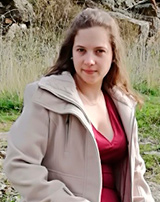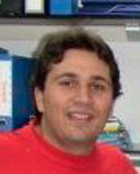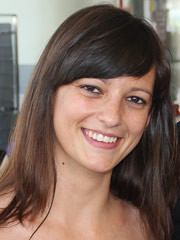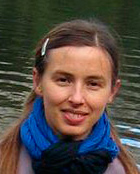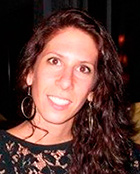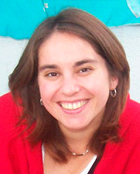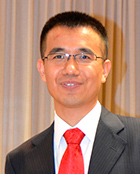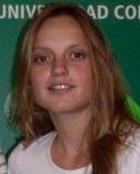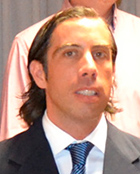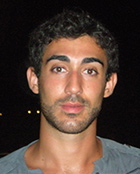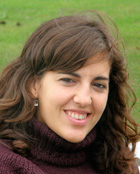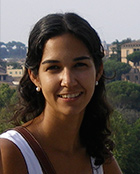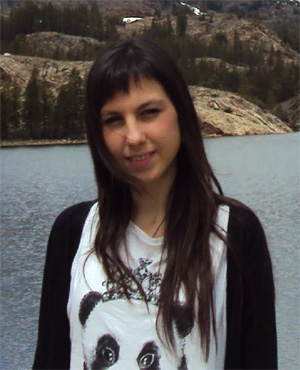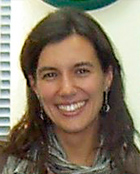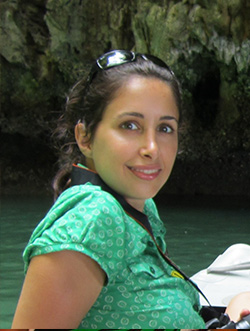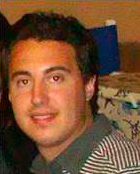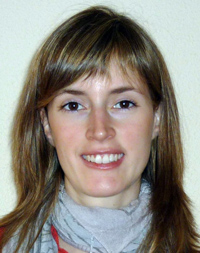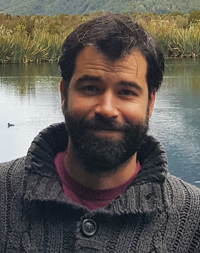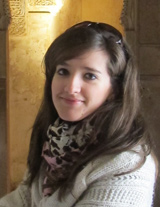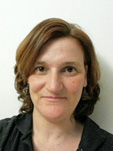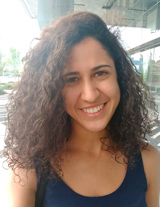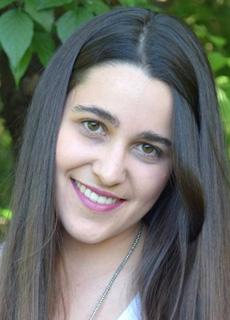José Ángel Barasona
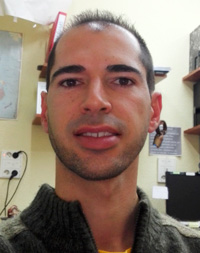 E-mail: This email address is being protected from spambots. You need JavaScript enabled to view it.
E-mail: This email address is being protected from spambots. You need JavaScript enabled to view it.
Profiles: OrcID ResearchGate Scholar Scopus
He was born in Cordoba in 1986. Graduated in Veterinary Medicine from the University of Cordoba in 2009. In 2010 he obtained the Master Degree in Game Research by the University of Castilla-La Mancha (UCLM), where he joined the Health and Biotechnology unit (SaBio Group) of the Research Institute in Hunting Resources (IREC) as pre-doctoral researcher in University Teacher Training (FPU-MECD).
In 2015 he obtained the PhD with International Mention for his thesis entitled "Epidemiology and prevention in the sanitary interaction between domestic and wild ungulates" by the UCLM. Since then he has enjoyed four postdoctoral contracts through competitive calls, both in Spain and France (“Juan de la Cierva-Formación”, COST, Martín Escudero, “Juan de la Cierva-Incorporación”). He recently joined the Unit of Preventive Medicine and Viral Immunology (SUAT Group) of the Centre for Veterinary Health Surveillance (VISAVET) and the Department of Animal Health of the Faculty of Veterinary Medicine, Complutense University of Madrid (UCM), through the European Project VacDIVA.
More information
Its line of research focuses on understanding and controlling shared infections affecting wildlife, domestic animals, humans and the environment. To this end, he combines in a multidisciplinary way tools of ecology (GIS, telemetry, unmanned aerial systems, proximity loggers) and veterinary sciences (pathology, diagnosis, environmental microbiology, epidemiology and preventive medicine) among different hosts of these shared infections ("One Health" approach) to design, evaluate and offer tools for their prevention and control. These include viral, bacterial and parasitic diseases, with special emphasis on tuberculosis and African swine fever (ASF), and as the main species of study, the wild boar (Sus scrofa). This is the species on which Jose Ángel has focused his scientific efforts for the last 10 years.
His main scientific-technical achievements include the identification of the sanitary interface between wild ungulates and extensive livestock in Mediterranean scenarios, to determine (i) the mechanisms of maintenance and transmission of several infectious pathogens (ASF virus, Mycobacterium bovis, porcine circovirus, Aujeszky's disease virus, PRRS virus, Escherichia coli, Hepatitis E virus, among others), (ii) wild boar mortality and population dynamics, and (iii) knowledge about intra- and interspecific contacts for the development of biosecurity programmes with concrete and specific management measures for each farm. In addition, he has successfully addressed different strategies for oral vaccination of wild boar against tuberculosis and ASF. He is currently working on the latter achievement within the framework of the VacDIVA project, as the researcher responsible for clinical trials in wild boar against ASF.
Jose Angel is the author of more than 45 articles in international scientific journals (SCI), 32 informative publications or scientific-technical documents, 6 book chapters and more than 80 presentations to congresses (70% international). He has participated in 21 R+D projects financed in competitive calls and in 8 contracts with the Public Administration and/or companies. He is associate editor for the journal Frontiers in Veterinary Science, evaluator of the Scientific Committee of Game Research of the Swedish Environmental Protection Agency (SEPA) and member of the Spanish Society for the Conservation and Study of Mammals (SECEM) and the Wildlife Disease Association (WDA).
Jaime Bosch
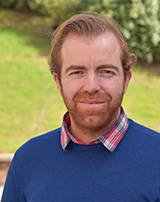
DES (E. Science) by the University of Seville in 2007, and Master´s Degree in Quantitative Methods of Research in Epidemiology (UAM). He defended PhD at the University Complutense of Madrid (UCM) in 2016. He worked as a researcher in the National Spanish Animal Health Research Centre (CISA-INIA) in the Epidemiology and Environmental Health Department.
His research was focused on the application the species distribution models in the epidemiology of many infectious diseases in which the wild species plays an important role as reservoir and host. Chiefly concerned the role of wildlife in the transmission and maintenance of diseases shared with domestic animals and the interactions in the wildlife-livestock interface (using holistic multidisciplinary approaches such as: spatial ecology, species distribution models, landscape connectivity models and the simulation of ecological processes). During his PhD, he applied the distribution models for the wild boar applicable to the management, not only for ASF, but also for other diseases shared between domestic pigs and wild boars, to identify scenarios with disease transmission risk in the boar-pig interface.
Currently, he has joined the UCM research team (Department of Animal Health; SUAT-VISAVET), and he is focusing on the spatial eco-epidemiology for modeling and analyzing disease risk spread and improving prevention, control, and surveillance programs for diseases shared between wildlife, livestock, and the environment, which have a great impact on animal and human health.
E-mail: This email address is being protected from spambots. You need JavaScript enabled to view it.
Sandra Barroso Arévalo
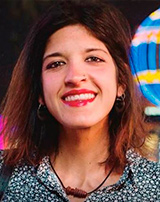
She graduated with a Degree in Veterinary Science from the Complutense University of Madrid in 2014. She joined the SUAT team in 2015 and started her Doctoral studies with a scholarship for The Training of University Teachers from the Ministry of Education, Culture, and Sport.
Her thesis focused on the main aspects involved in colony losses of honey bees (Apis mellifera). In 2019, she obtained the International Doctorate mention for his Ph.D. thesis.
Currently, she is working at the SUAT team as a postdoctoral researcher in the African swine fever investigation line. Her research interests are now focused on the host immune response to viral infection, molecular diagnosis, and cell culture adaptation.
E-mail: This email address is being protected from spambots. You need JavaScript enabled to view it.
Satoshi Ito
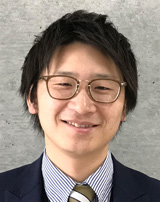
Dr. Satoshi graduated from Rakuno Gakuen University, Hokkaido, Japan in 2016 with a Doctor of Veterinary Medicine (DVM) and the PhD in Veterinary Medicine from Hokkaido University in 2020. During his PhD study, he participated with the SUAT team for a year to complete his PhD study on “Risk assessment of transboundary swine diseases in Japan”.
Current, his research interests are mainly focusing on veterinary epidemiology. Specially, he works on spatio-temporal epidemiology and risk assessment of transboundary swine diseases in Asia. He joined the SUAT team as a postdoctoral researcher in October 2020.
E-mail: This email address is being protected from spambots. You need JavaScript enabled to view it.
Cecilia Aguilar Vega
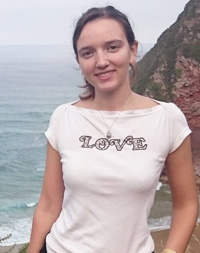
Graduated with degree in Veterinary Medicine from the University Complutense of Madrid (2011-2016). Cecilia joined the SUAT team in September 2016 and was an intern with us during the last two years of her studies.
Her field of research focuses on the molecular study of the bluetongue virus, in addition to the spatial epidemiological analysis of the disease.
E-mail: This email address is being protected from spambots. You need JavaScript enabled to view it.





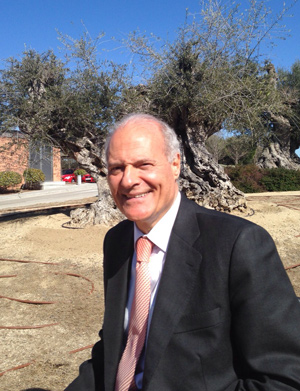
 E-mail:
E-mail: 



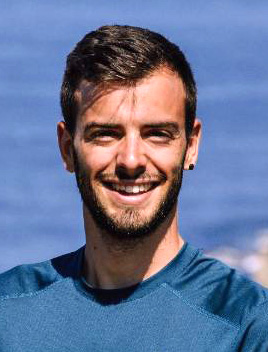 He has a degree in Veterinary Medicine at the Complutense University of Madrid (2012-2018). He participated as an intern in the SUAT group for three years and then joined our working group in September 2018.
He has a degree in Veterinary Medicine at the Complutense University of Madrid (2012-2018). He participated as an intern in the SUAT group for three years and then joined our working group in September 2018.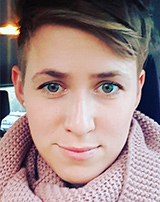
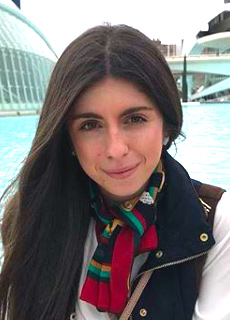
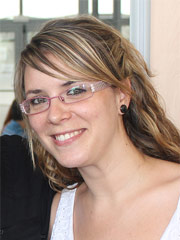 She was born in Madrid in 1984. She finished her Superior Technical Laboratory studies in 2004. She did her internship in the General Hospital Nr. 12 in October.
She was born in Madrid in 1984. She finished her Superior Technical Laboratory studies in 2004. She did her internship in the General Hospital Nr. 12 in October.